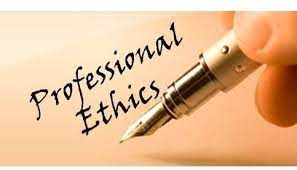Professional ethics play a crucial role in shaping the conduct and behavior of individuals within various fields of work. These ethical standards, often outlined by professional organizations, provide a framework for responsible and principled behavior. The positive effects of professional ethics are multifaceted, impacting individuals, organizations, and society at large.
Professional ethics encompasses a set of principles and standards that guide individuals in the workplace, ensuring integrity, honesty, and responsible conduct. Upholding professional ethics involves maintaining transparency, respecting confidentiality, and avoiding conflicts of interest. It demands a commitment to competence, continuous learning, and adherence to industry regulations. Professionals are expected to prioritize the well-being of clients and colleagues, fostering a culture of trust and collaboration. Ethical behavior extends beyond legal compliance, emphasizing moral obligations and social responsibility. By embracing professional ethics, individuals contribute to a positive work environment, build credibility, and enhance the reputation of their respective professions.
In this discussion, we will delve into some of the key positive effects of professional ethics.
1. Trust and Credibility:
Professional ethics contribute significantly to the establishment and maintenance of trust in professional relationships. When individuals adhere to ethical standards, they demonstrate a commitment to honesty, integrity, and transparency. This, in turn, enhances their credibility, fostering trust among colleagues, clients, and the public. Trust is the foundation of successful professional relationships and collaborations.
2. Enhanced Reputation:
Companies and professionals with a strong commitment to ethics often enjoy a positive reputation in their respective industries. A good reputation attracts clients, customers, and collaborators, leading to increased opportunities for business growth and success. Ethical behavior is seen as a valuable asset, and organizations that prioritize it are more likely to be perceived positively by the public.
3. Employee Morale and Engagement:
A workplace with a strong ethical culture tends to have higher levels of employee morale and engagement. When individuals feel that they work for an organization that values integrity and fairness, they are more likely to be motivated and committed to their work. This positive work environment contributes to increased productivity and a sense of pride among employees.
4. Risk Mitigation:
Adhering to professional ethics helps organizations mitigate various risks, including legal, financial, and reputational risks. Ethical decision-making processes can prevent individuals and organizations from engaging in activities that could lead to legal troubles, financial losses, or damage to their reputation. This proactive approach to risk management is essential for long-term success.
5. Customer Satisfaction:
Customers are increasingly conscious of the ethical practices of the companies they engage with. Professional ethics, when integrated into business practices, contribute to customer satisfaction. Consumers are more likely to support and remain loyal to companies that prioritize ethical considerations, such as fair treatment of employees, environmental responsibility, and transparency in business dealings.
6. Innovation and Creativity:
An ethical work environment encourages creativity and innovation. When individuals feel supported by an ethical framework, they are more likely to share ideas and collaborate, leading to the generation of innovative solutions. Ethical organizations foster an atmosphere where employees feel comfortable taking risks and thinking outside the box.
7. Legal Compliance:
Professional ethics often align with legal standards, ensuring that individuals and organizations operate within the boundaries of the law. Adhering to ethical principles reduces the likelihood of legal disputes, investigations, and regulatory actions. This, in turn, saves resources and protects the interests of both individuals and organizations.
8. Social Responsibility:
Professional ethics extend beyond individual and organizational interests to encompass broader social responsibilities. Ethical professionals and organizations actively contribute to the well-being of society by considering the impact of their actions on the community, environment, and stakeholders. This commitment to social responsibility fosters a positive image and helps address societal challenges.
9. Global Impact:
In an interconnected world, ethical practices contribute to global stability and cooperation. Professionals who adhere to ethical standards in international business transactions promote fair and equitable relationships among nations, fostering global collaboration and economic development.
10. Personal Growth and Fulfillment:
Adhering to professional ethics promotes personal growth and fulfillment. Individuals who align their actions with ethical principles experience a sense of purpose and satisfaction in their professional lives. This, in turn, contributes to a fulfilling and meaningful career.In conclusion, the positive effects of professional ethics are far-reaching, influencing individual behavior, organizational success, and societal well-being. By upholding ethical standards, professionals contribute to a positive work environment, build trust, and create a foundation for sustainable growth and prosperity. The integration of ethical principles into professional practices is essential for fostering a responsible and thriving global community.










